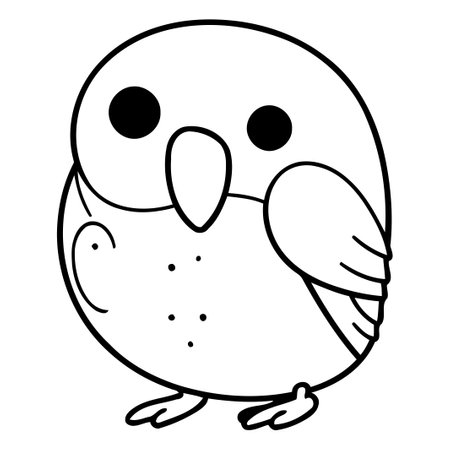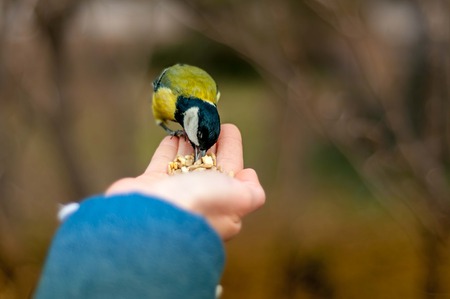Introduction: Parrot Care in the UK Context
Parrots have become increasingly popular companions in homes across the United Kingdom, admired for their intelligence, vibrant plumage, and engaging personalities. The British approach to pet bird ownership is shaped by a deep respect for animal welfare and a keen interest in replicating natural habitats as closely as possible. Within the UK, there is a strong emphasis on providing ethical care, which includes not only mental stimulation and appropriate housing but also a diet tailored to each species’ specific needs. Local attitudes towards parrots are generally positive, with owners viewing them as cherished family members rather than mere pets. However, cultural considerations such as climate, availability of certain foods, and traditional British feeding practices all play significant roles in shaping how parrots are cared for throughout the country. Understanding these local nuances is essential for anyone wishing to provide the best possible life for their feathered companions within a UK context.
Understanding Parrot Dietary Needs
Caring for parrots in the UK involves more than simply offering a bowl of seeds. With a range of species commonly kept as companions—such as African Greys, Budgerigars, Cockatiels, and Amazons—it’s essential to understand their distinct dietary needs. Each species has unique nutritional requirements, and providing a varied diet is crucial to their long-term health and happiness.
Parrots are intelligent and active birds, requiring a balanced intake of macronutrients (proteins, fats, carbohydrates) alongside micronutrients like vitamins and minerals. A monotonous diet, such as one consisting solely of seeds or pellets, can lead to deficiencies or obesity. In the UK, where seasonal produce changes throughout the year, careful planning ensures your parrot receives the right nutrients regardless of what’s available locally.
Why Diet Variety Matters
A varied diet helps mimic the natural foraging habits of wild parrots, supporting mental stimulation and preventing selective eating. It also reduces the risk of common health issues like fatty liver disease or vitamin A deficiency. By offering different foods in rotation, you cater not only to your parrot’s physical needs but also enrich their daily experience—a vital part of responsible parrot keeping in the UK.
Commonly Kept Parrot Species in the UK & Their Nutritional Requirements
| Species | Main Dietary Components | Special Considerations |
|---|---|---|
| African Grey Parrot | Pellets (base), fresh fruits & veg, grains, small nuts | High need for calcium and vitamin A; sensitive to fatty foods |
| Budgerigar (Budgie) | Seeds (varied), leafy greens, vegetables, occasional fruit | Prone to obesity if fed too many seeds; require iodine supplementation |
| Cockatiel | Seeds & grains (millet-based), fresh veg, herbs | Enjoys sprouted seeds; avoid avocado and chocolate entirely |
| Amazon Parrot | Pellets (base), wide variety of vegetables & fruit, legumes | Tends toward weight gain; limit high-fat treats like sunflower seeds |
Balanced Feeding in a British Context
The British climate offers seasonal access to certain fruits and vegetables—think apples in autumn or greens in spring. Adjusting your parrot’s menu according to local produce ensures freshness and nutritional value while supporting sustainable choices. Always wash produce thoroughly and avoid anything sprayed with pesticides.

3. Recommended Diets: Safe and Nutritious Foods
Feeding parrots in the UK requires attention to both nutritional balance and the unique availability of foods in British supermarkets and markets. A practical, well-rounded diet for parrots centres on high-quality pellets designed specifically for their needs. Brands widely available in the UK, such as Harrison’s or Pretty Bird, offer complete nutrition and can serve as a dietary staple. However, pellets should form only about 60-70% of your parrot’s daily intake to ensure variety and prevent boredom.
Fresh produce plays an equally important role. Opt for seasonal fruits and vegetables sourced locally whenever possible—think apples, carrots, kale, broccoli, peas, and berries. Always wash thoroughly to remove pesticides and avoid offering avocado, onions, garlic, or rhubarb as these are toxic to parrots. Leafy greens are particularly beneficial; try rotating spring greens, spinach (in moderation), and dandelion leaves to provide essential vitamins.
Safe treats can be part of your parrot’s routine in moderation. Small pieces of plain oatcakes or unsalted rice cakes—common in many UK households—can be offered occasionally. Wholegrain bread crumbs (without added salt or sugar), cooked pulses, and unsalted nuts such as almonds or walnuts make excellent enrichment foods when given sparingly. Always avoid chocolate, caffeine, alcohol, and anything with artificial sweeteners.
Ultimately, a balanced approach blending commercial pellets, fresh British produce, and safe homemade treats not only supports your parrot’s health but also encourages natural foraging behaviours and mental stimulation. Consult with an avian vet familiar with UK conditions if you’re ever unsure about specific foods or portion sizes for your feathered companion.
4. Foods to Avoid: Common UK Hazards
When caring for parrots in the UK, it’s crucial to be mindful of foods and substances that can pose significant risks. Many everyday items found in British homes and gardens are harmful or even fatal to parrots. As responsible keepers, we must always check what we offer our birds, especially as British cuisine and garden plants differ from those in other regions.
Common Toxic Foods and Substances
Below is a table outlining some of the most common hazards in UK households and gardens. Keeping this list close at hand will help you avoid accidental poisoning and keep your parrot safe and thriving:
| Food/Substance | Where Found in the UK | Reason for Danger |
|---|---|---|
| Avocado | Supermarkets, home kitchens | Contains persin, toxic to parrots and can cause heart failure |
| Chocolate | Sweets, baked goods | Theobromine content is highly poisonous to birds |
| Caffeine (tea, coffee) | Beverages, tea time treats | Affects cardiac function and the nervous system of birds |
| Onion & Garlic | Savoury dishes, seasoning mixes | Can cause digestive upset and haemolytic anaemia |
| Alcohol | Pubs, home bars, celebrations | Toxic to birds’ organs; even small amounts are dangerous |
| Apple seeds & Fruit pits (e.g., cherry, plum) | Home fruit bowls, gardens with fruit trees | Contain cyanogenic compounds which are lethal to parrots |
| Dairy products (milk, cheese) | Baked goods, snacks, cheese platters | Most parrots are lactose intolerant; causes digestive distress |
| Mushrooms (wild & some store-bought varieties) | Gardens, local markets, foraging walks | Certain fungi contain toxins dangerous to birds’ livers and kidneys |
| Savoury snacks (crisps, salted nuts) | Pubs, picnics, snack cupboards | High salt content can cause dehydration and kidney damage in parrots |
| Xylitol (artificial sweetener) | Sugar-free gum, diet foods, some peanut butters | Extremely toxic; causes rapid insulin release and liver failure in birds |
| Daffodil bulbs & other toxic plants (foxglove, yew) | British gardens, public parks during spring/summer months | Toxic alkaloids or glycosides present can be fatal if nibbled on by curious parrots indoors or outdoors |
Extra Caution: Hidden Dangers in British Homes and Gardens
Beyond food items, many cleaning agents and scented candles commonly used in UK households may emit fumes or contain chemicals that are hazardous to parrots’ delicate respiratory systems. Always keep your parrot away from areas being cleaned with strong chemicals or from rooms where candles or incense are burning.
A Caretaker’s Checklist:
- Double-check all foods before offering them as treats.
- Avoid allowing your parrot unsupervised access to kitchens or gardens.
- If unsure about a plant or food item’s safety—leave it out of their diet!
Your parrot relies on you for protection—by staying vigilant about these UK-specific hazards, you ensure a safer environment for your feathered companion.
5. Feeding Practices: Tips and Cultural Insights
Establishing a consistent and healthy feeding routine is essential for your parrot’s wellbeing in the UK. It’s generally best to provide fresh food in the morning, allowing your parrot to graze throughout the day as they would in their natural environment. Many British parrot owners prefer using sturdy ceramic or stainless steel bowls, which are easy to clean and resistant to bacteria—perfect for the UK’s often damp climate.
When it comes to tableware, avoid plastic as it can harbour germs and be easily damaged by strong beaks. Instead, opt for locally available options from reputable UK pet shops; some even offer hand-crafted ceramic dishes that add a touch of British charm to your bird’s enclosure.
The unpredictable UK weather also plays a role in dietary needs. In colder months, parrots may benefit from slightly increased portions and foods richer in healthy fats—like walnuts or small amounts of coconut—to support their energy needs. Conversely, during warmer periods, ensure access to plenty of fresh water and consider offering juicy fruits such as apples and pears (always seedless) sourced from local markets.
It’s also common practice in the UK to use foraging toys made from safe, native woods like willow or apple, encouraging natural behaviours while making mealtimes engaging. Remember, always introduce new foods gradually and keep an eye on portion sizes to prevent waste and maintain freshness—both important aspects of responsible parrot care in Britain.
6. Ethical and Legal Considerations
When feeding parrots in the UK, it is essential to be aware of the ethical and legal responsibilities that come with avian care. The UK has robust animal welfare legislation, most notably the Animal Welfare Act 2006, which sets out the duty of care for all pet owners. This includes providing a suitable diet, ensuring proper nutrition, and preventing unnecessary suffering due to neglect or ignorance. Parrot keepers must familiarise themselves with these laws to ensure their birds’ well-being.
Culturally, there is a strong respect for animal welfare throughout the UK. Responsible parrot ownership means not only meeting legal requirements but also adhering to best practice guidelines from reputable organisations such as the RSPCA and The Parrot Society UK. These organisations recommend a varied diet tailored to the species’ needs, regular access to clean water, and the avoidance of harmful foods like chocolate, avocado, and foods high in salt or fat.
Ethically, owners are encouraged to go beyond minimum standards by considering enrichment and natural behaviours in feeding routines. For example, offering foraging opportunities replicates wild habits and supports mental stimulation. In addition, sourcing food responsibly—such as choosing sustainable fruits and vegetables—aligns with growing public awareness around environmental impact and ethical consumerism.
Education plays a crucial role: sharing knowledge within local communities and parrot groups helps raise standards of care. If you are unsure about any aspect of your parrot’s diet or welfare obligations, consulting an avian veterinarian or joining reputable UK-based forums can provide invaluable guidance. Ultimately, feeding parrots in the UK is both a privilege and a responsibility—one that reflects broader cultural values of compassion and respect for all living creatures.
7. Conclusion: Encouraging Healthy Habits
Providing proper nutrition and mindful care for parrots in the UK is not just a matter of following a diet chart—it’s about fostering a holistic, lifelong sense of well-being for our feathered companions. British weather, lifestyle, and food availability all play a role in shaping the daily routines and health of pet parrots. As owners, our responsibility extends beyond the basics; it includes remaining attentive to their changing needs and embracing best practices rooted in both science and experience.
One of the most rewarding aspects of parrot ownership in the UK is the opportunity to connect with local avian communities. Engaging with fellow enthusiasts—whether through bird clubs, online forums, or avian veterinary clinics—opens doors to invaluable support and shared knowledge. These networks can be a lifeline when navigating challenges unique to keeping parrots in Britain, from sourcing fresh produce year-round to finding reliable advice on adapting diets to seasonal changes.
By staying informed, seeking guidance from reputable sources, and sharing experiences within your local parrot-keeping community, you help create an environment where both you and your birds can thrive. Remember, healthy habits are cultivated over time—with patience, observation, and a willingness to learn from others’ successes (and mistakes), you ensure your parrot enjoys a vibrant life full of variety and enrichment.
Ultimately, nurturing a parrot’s well-being in the UK means embracing both tradition and innovation. Let’s continue supporting each other as responsible keepers, always striving for the highest standards of care so that our beloved birds flourish for years to come.


